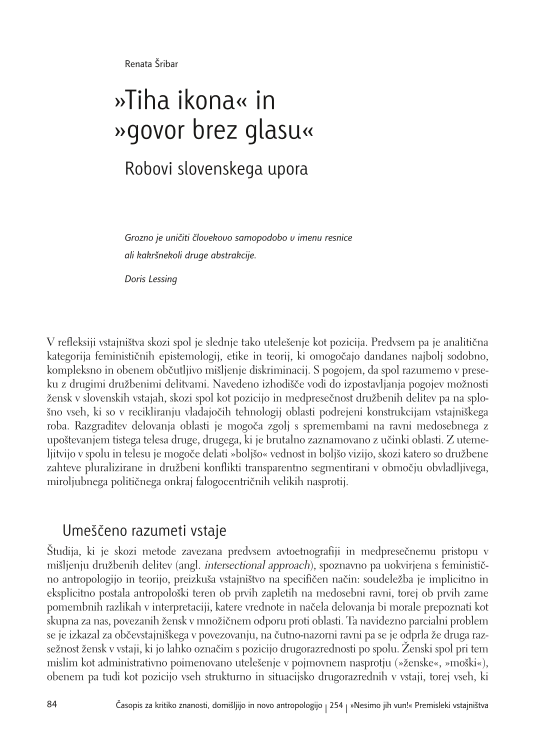The paper addresses the Slovenian uprisings by way of auto-ethnography, with a focus on the interpersonal level, accentuating the fact of complex, intersected social divisions. The basic concept, the body/corporeality is adopted from the feminist theory. Through this and the thinking of the social positionality, the margin of the Slovenian resistance is figuratively articulated by the author with a quiet presence of the disintegrated “subject”— and by the silence as a gesture of the resistance against the uprisings’ power relations. The technology of the latter recycles the ruling authorities’ “governmentality” (Foucault). The Slovenian uprisings’ manifested symptoms of this are differentiated, yet paradigmatic, a key element of the paradigm being the secrecy with which the dominant instances form the circuit of the informed– involved and the uninformed, excluded and instrumentalized for the implementation of the (certain) tasks. The focus on the recognition of the other, who is embodied in the mutual intersections of the social divisions, allows for the agency on the platform of the interpersonal and differentiation, which produces the multiplication of the socio-political demands—on the way to radicalized , pluralized, agonistic democracy (Mouffe).




